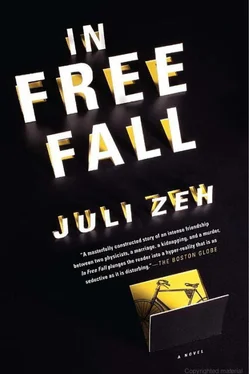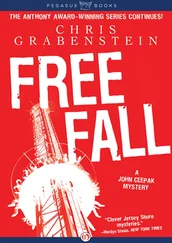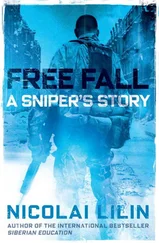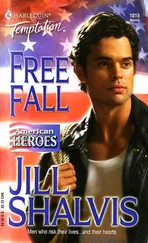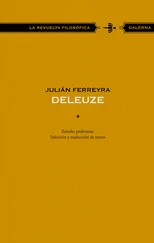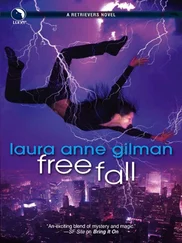But he also thinks: I have not asked her about her past. She doesn’t ask me about my future. And that’s what you call a deal. Sleep and death have this in common: they offer only single rooms. You can’t take anyone with you.
Rita takes her hand away from Schnurpfeil’s cheek.
“Go on now,” she says, her tone sharp.
The senior policeman gets on the bike and pedals furiously to get uphill. Schilf watches him conquer the long, curving ascent and pass the inn at the upper edge of the hollow until his tiny figure disappears into the trees, where he will hide himself, bicycle and all. And wait.
Schilf turns away and checks the steel cable with one hand. Sebastian, the expert in such matters, has tightened it to maximum tension, even though that is wholly unnecessary for today’s events.
Schilf signals again and Sebastian, who is wearing the same yellow jersey as Schnurpfeil, gets down on his knees. He stretches himself facedown on the pavement a few meters away from the steel cable so that his body is lying on the road. Rita Skura walks over and covers his head and shoulders, which are at the edge of the pavement, with branches.
When Schilf looks straight up he sees the second bike hanging from the treetops, dangling gently from an invisible nylon rope. On his second attempt Schnurpfeil had managed to loop the rope through the branches as if using a grappling hook. He raised the bike and tied the rope around the trunk of a young birch tree. Schilf now unties the rope, and has to brace himself with all his might against the weight of the bicycle.
Steel cord, dead body, bike.
He gives the final signal and Rita Skura steps behind the tree on the right-hand side of the steel cable, while he takes his position behind the tree on the left.
The orchestra of birds has finished tuning up and is whistling an aleatoric overture. Although Schilf is tense, his heart beats only reluctantly. At his feet, ants are carrying leaf fragments back and forth. No dead caterpillar this time, and no mosquitoes. Schilf’s head expands into a wide room in which thoughts wander with echoing steps.
What if he doesn’t come?
Then the story has no end.
And if it all makes no sense?
Then nothing new will have been said about human life, the detective thought , the detective thinks.
But here he is. He has thought it a good idea to wear a hat and carry a stick; they fit in with this romantic and somehow tragic charade. He looks like a man going for a Sunday stroll a hundred years ago.
Oskar checked into his room in the Panorama Hotel at the summit of Schauinsland late yesterday evening, and paid the bill in advance. He informed reception that, at dawn, he would be going on a long hike. Nobody found that strange. Patiently, he reciprocated the exaggerated smiles of the hotel employees.
He passed the night sitting on the balcony, watching a solid fog fill the crevices of the mountain landscape, thinking about whether the expression “a long hike” sounded strange. He had expected the police to get in touch ever since Schilf had come to see him. He hoped that they would be discreet enough not to visit him at work. He had prepared a reply for every possible question.
It was simply a joke between friends. No one was meant to come to any harm. Everything else that had happened could not, as the lawyers say, with all due and proper care, have been foreseen, so he could in no way be accused of it.
He had not reckoned on an invitation to take an early morning walk in the woods. It was very clear to him that his rehearsed replies would be of no use here. They probably wanted to confront him with Sebastian. Perhaps it was Sebastian himself who was behind the whole thing. Perhaps, Oskar thought, as he spent hour after hour staring into the dark, savagely silent mountain landscape, the detective is not a detective at all but a paid henchman. And Sebastian will shoot Oskar at the very scene of the crime. The question is: Will he toss Oskar a second weapon before that?
Oskar has not wasted a second asking himself whether it was sensible to accept the invitation. In a moment of weakness, he had a vision of himself standing opposite Sebastian in the dawn mist, each aiming at the other with an old-fashioned pistol before they hesitate, lower their weapons, and walk toward each other with arms held wide. He forbade himself this thought immediately. He knows he has lost his friend. Now he wants only to find out what these people have in store for him. He is longing to see how much he means to them. Is the intelligence of a chess-playing detective really equal to his? Nothing would be worse than losing to an inferior opponent.
If this mixture of anticipation and trepidation suited someone who was marching along an unknown path toward an unclear destination, the hike that Oskar had started on early this morning would truly be a long one.
There is a break in the forest. Oskar looks out over a broad hollow, dotted with sleeping cows, dark mounds of flesh in the grass. The road leads up toward the old inn, which looks rather put-upon with its blocked-up windows and doorways. Just before the building, the road swings around toward the left in a steep curve, disappearing between the trees after a hundred meters.
Oskar is happy to have the chance to walk a stretch under the open sky. Every dead tree in the forest is a shadowy man in a long coat, and the snap of every twig is a mysterious footstep. Enjoy the beauty of nature, the detective had said on the phone. Oskar counts his steps to avoid self-reflection. The seconds have slowed down, and are much slower than the tempo of his steps. One after the other they tip over the edge of the present in slow motion. Perhaps it seems that way because Oskar is striding forward so briskly. It happened down there. At three hundred his understanding of the situation begins to slip away. At four hundred he no longer knows what he is doing here at all. At five hundred he has reached the inn. He cranes his neck and squints into the distance. Something is shining in the half-light under the treetops where the road enters the forest.
A bell sounds and he nearly jumps out of his skin. He had not heard the cyclist coming from behind. He just manages to leap to one side as something yellow flashes past him. At the end of the curve the racing bike straightens its course and the cyclist pedals on with his head lowered. Oskar wants to scream. Barely a split second later, the bike reaches the forest. Something explodes onto the road and a shower of metal parts catch the light; screws and rods clink and clatter in every direction. Another split second, and all is silent. Deathly silent.
Oskar’s leather-soled shoes are not made for running on slippery pavement. He slips and stumbles, ducks under the steel cord just in time, and slides to a standstill. He steps carefully over the wreckage of the bicycle. A man in a yellow jersey lies there, his upper body hidden in the undergrowth, his legs stretched out into the road. Oskar stares, incapable of taking another step, completely unable to think clearly. The eloquent inner monologue which has been with him since his childhood, always ready to pipe up, has been silenced. It’s incredible how loudly the birds are singing.
Oskar senses rather than hears the movement behind him. He tears his gaze from the body on the road and turns around. The first detective chief superintendent is standing to the left of the steel cable, still as a waxwork. On the right-hand side is a woman in a flowery dress.
Two sentinels at the posts of a demonic gate.
The woman is holding a man by his hair, a man who consists only of a face and a neck. The eyes are wide open and staring shamelessly at Oskar. The woman starts walking toward him and seems to want to pass the severed head to him; a Salome, only without the silver platter. She stops in the middle of the road and puts the head on the ground. It tips over to one side and rolls toward Oskar, turns a semicircle on a vertebra, and lies still. Oskar realizes that he needs to breathe. His dizziness subsides after two breaths.
Читать дальше
